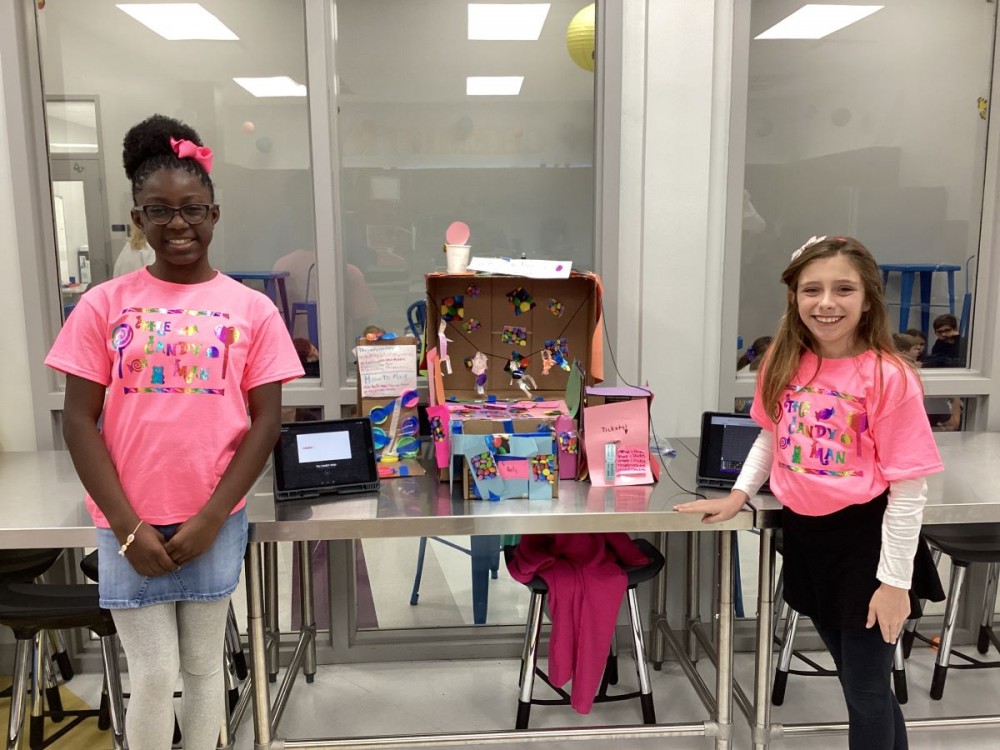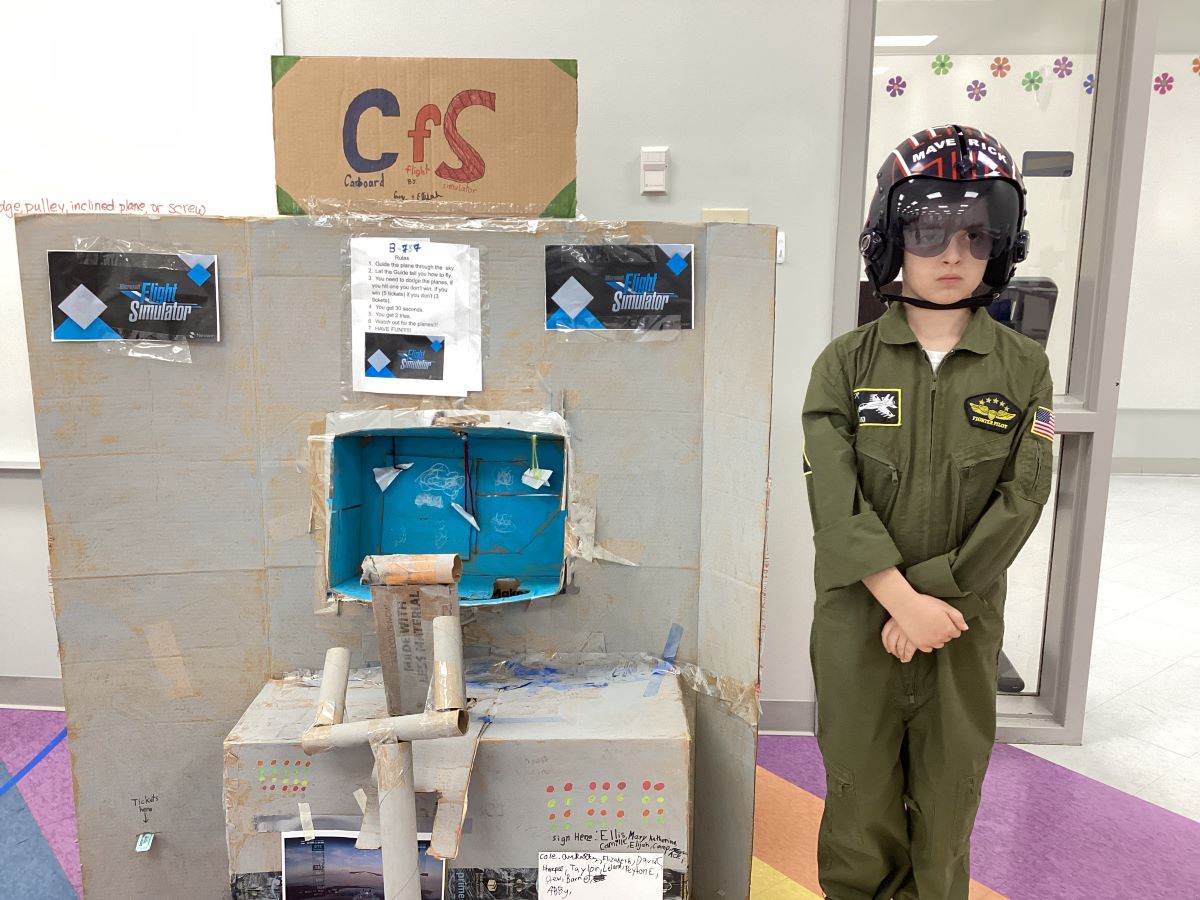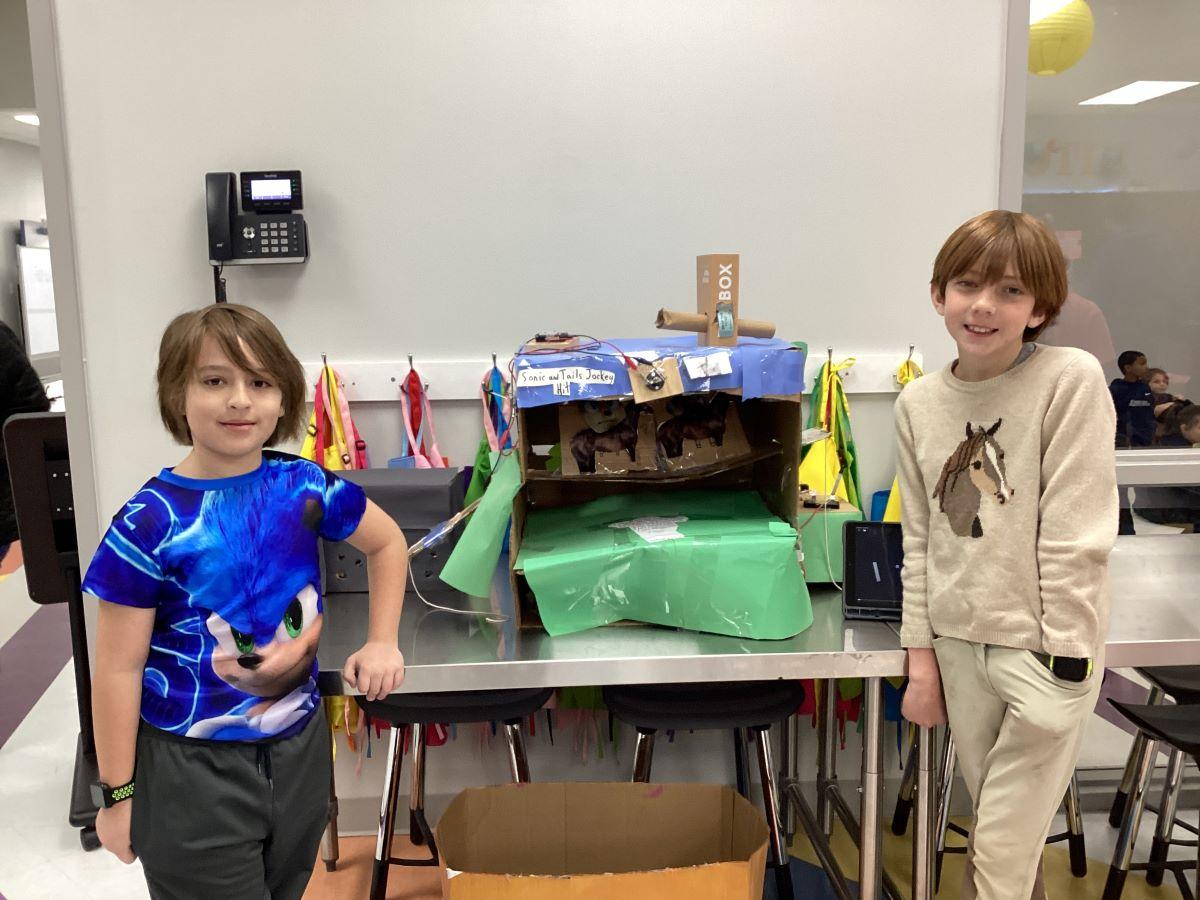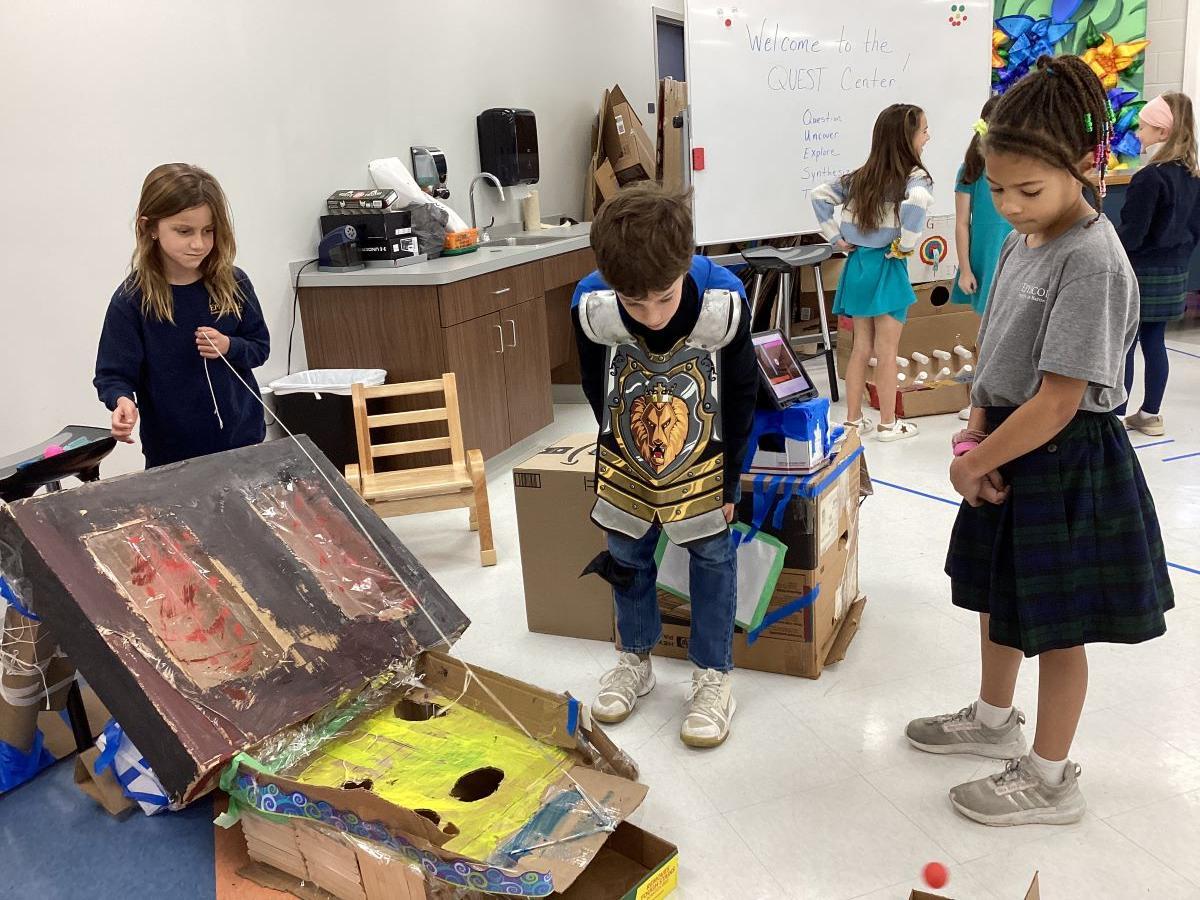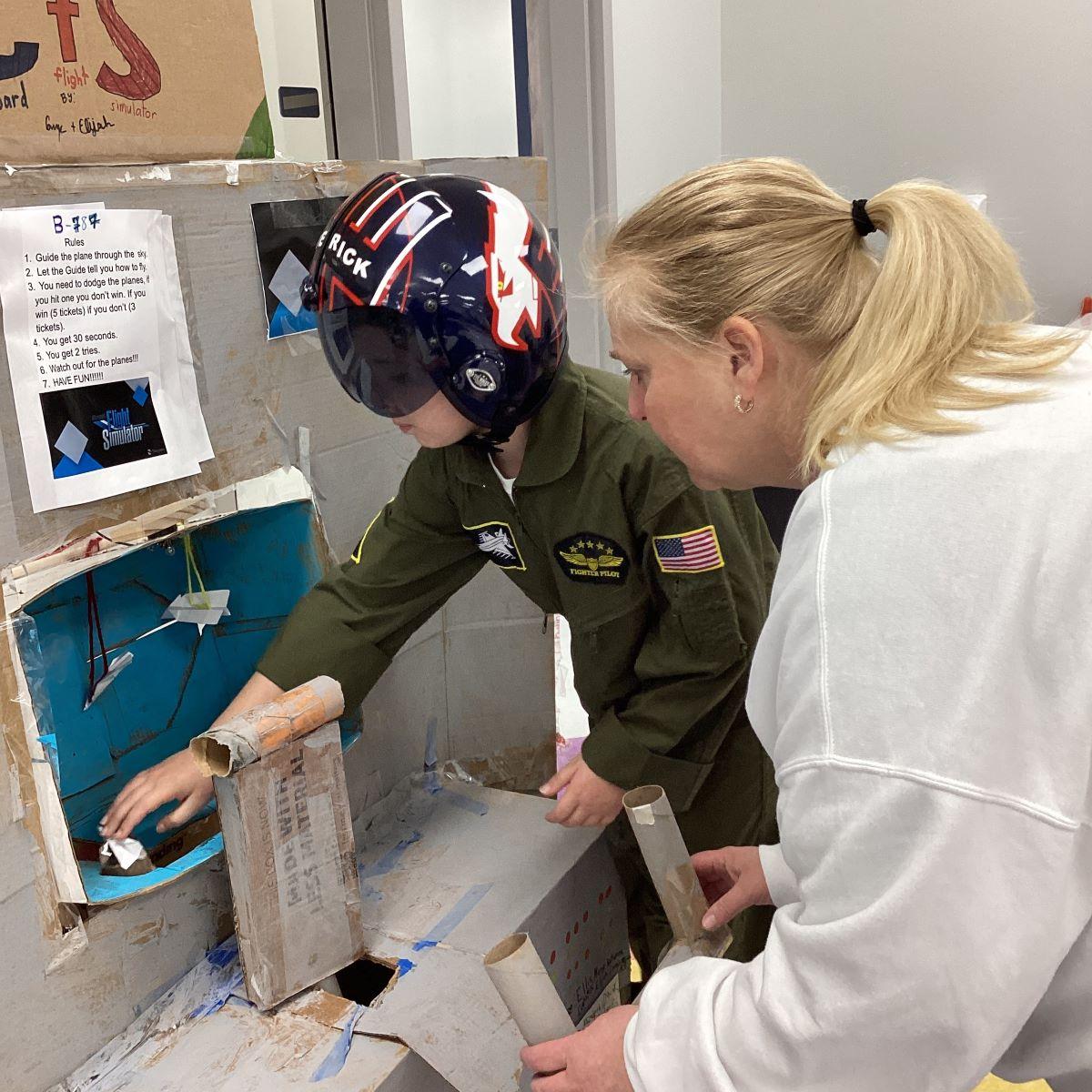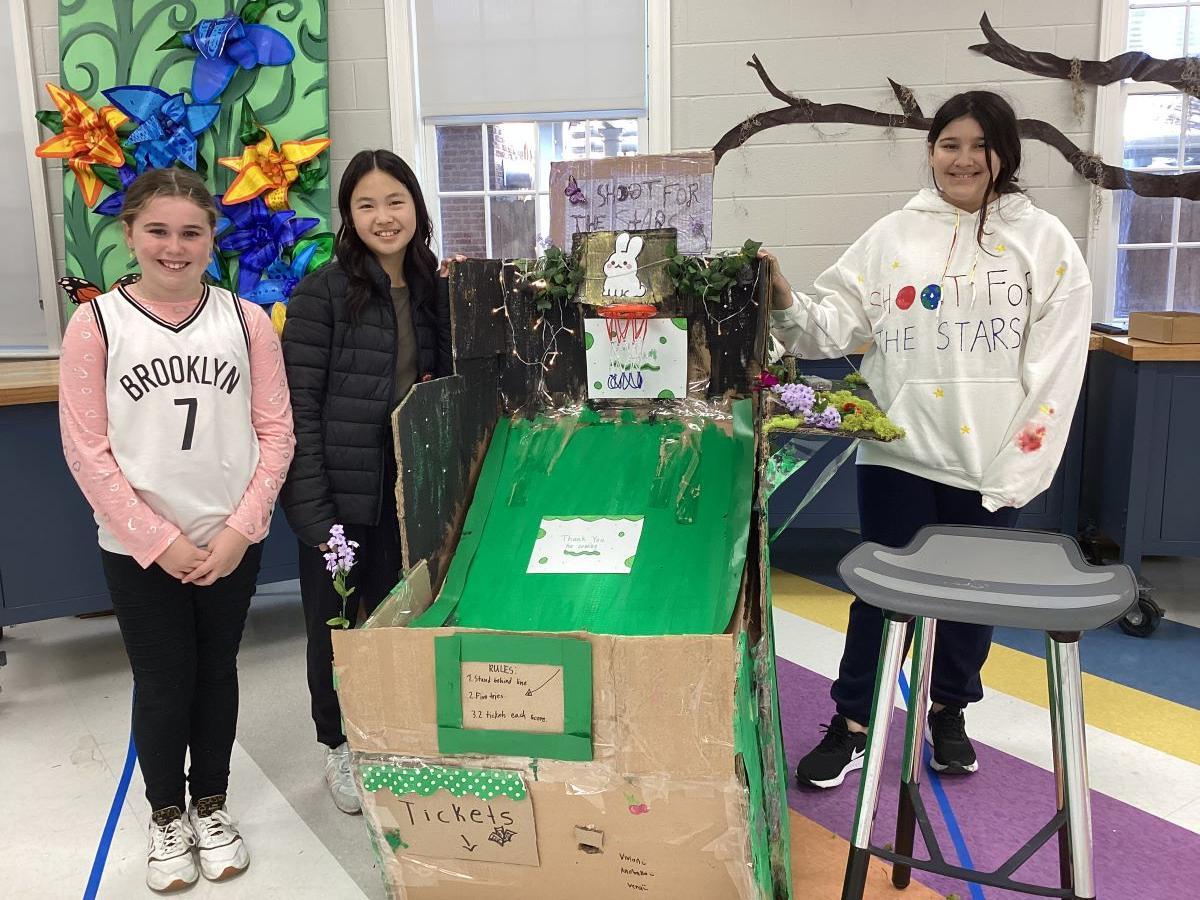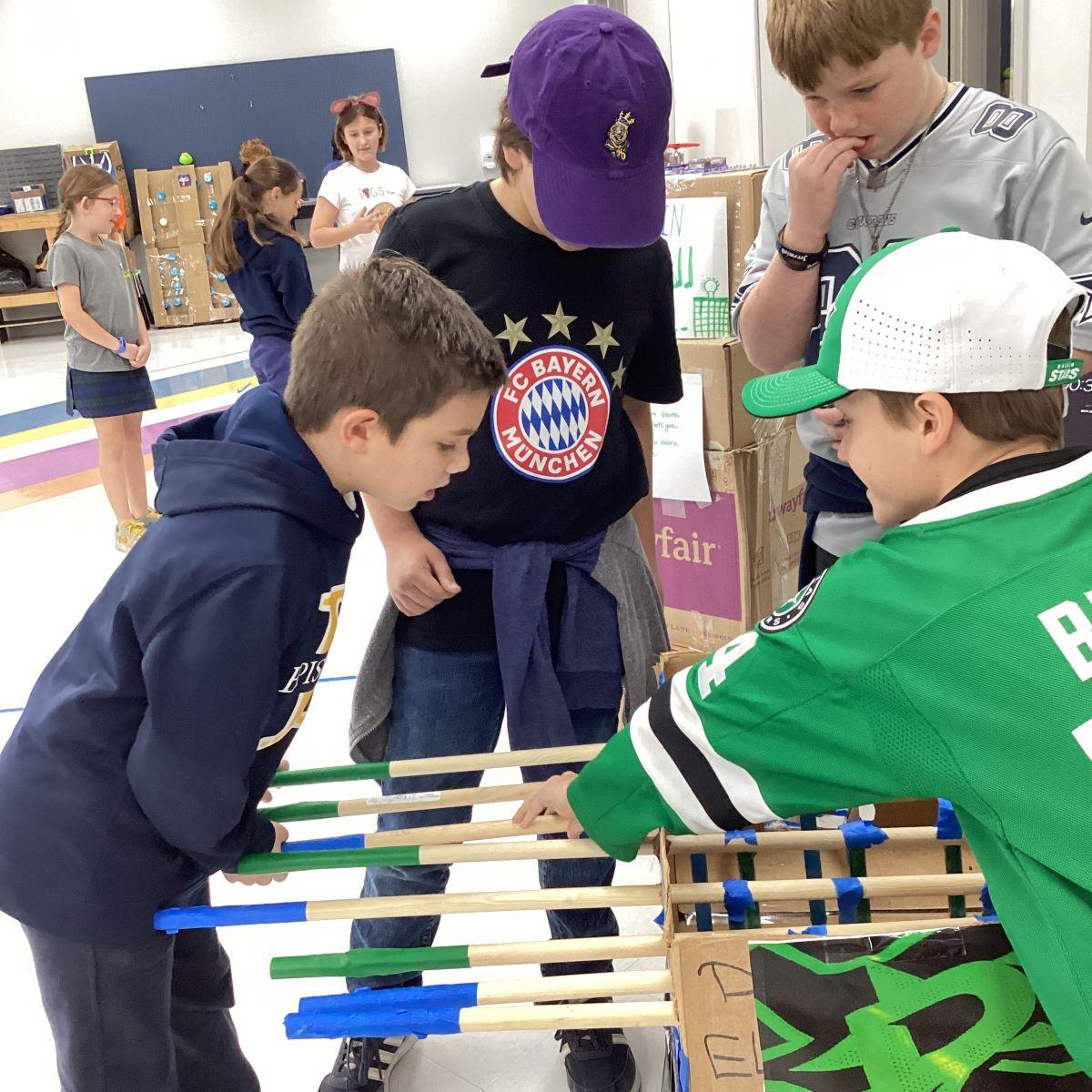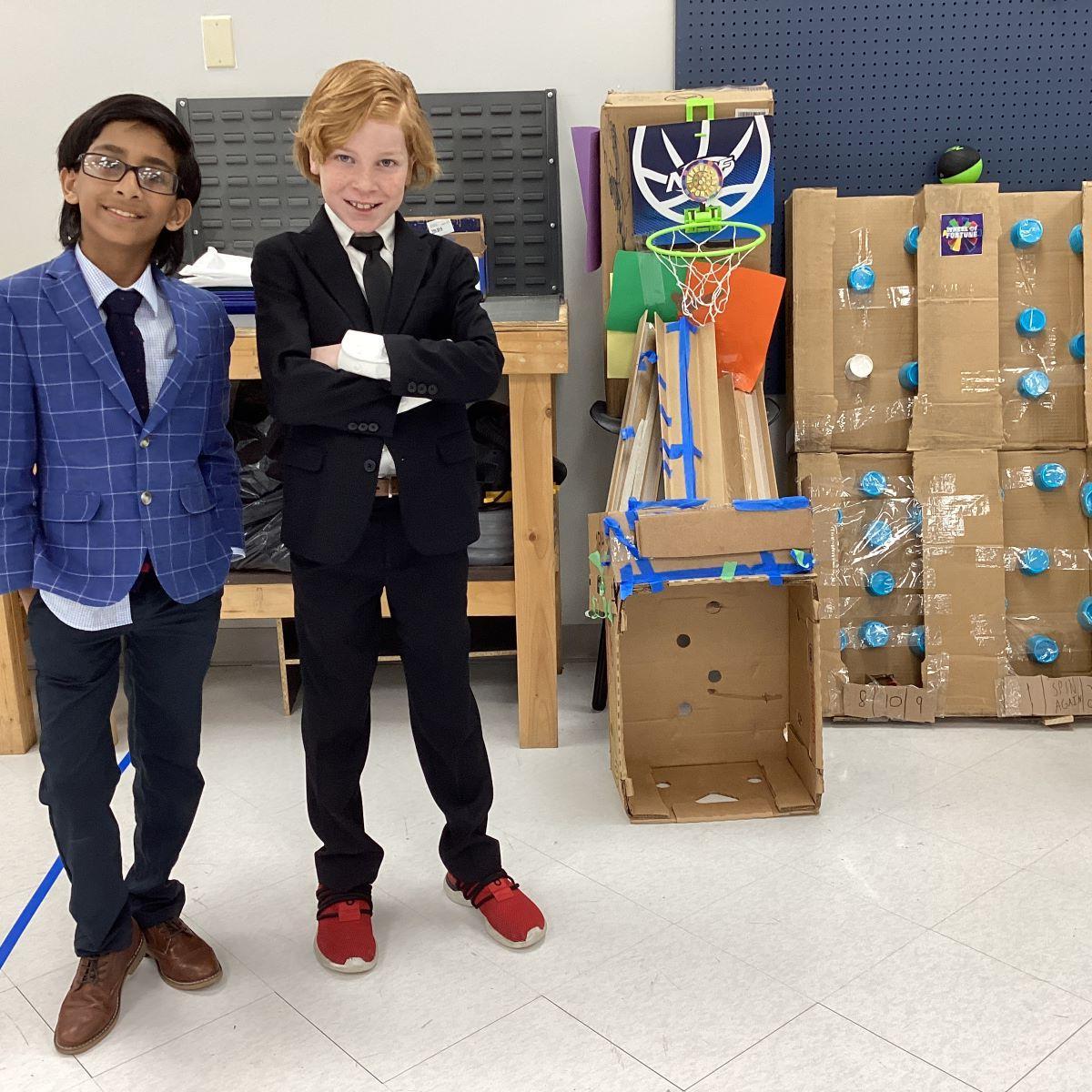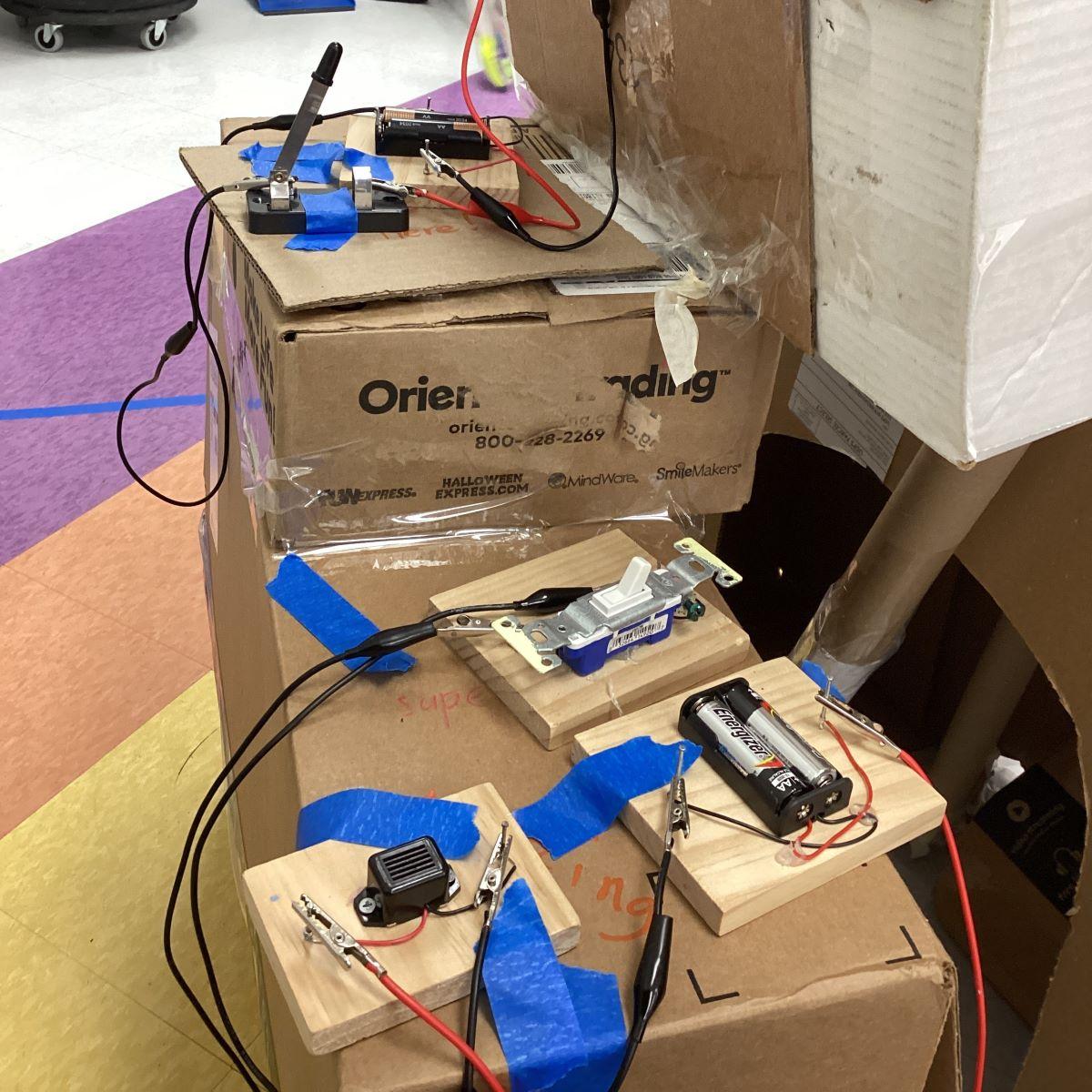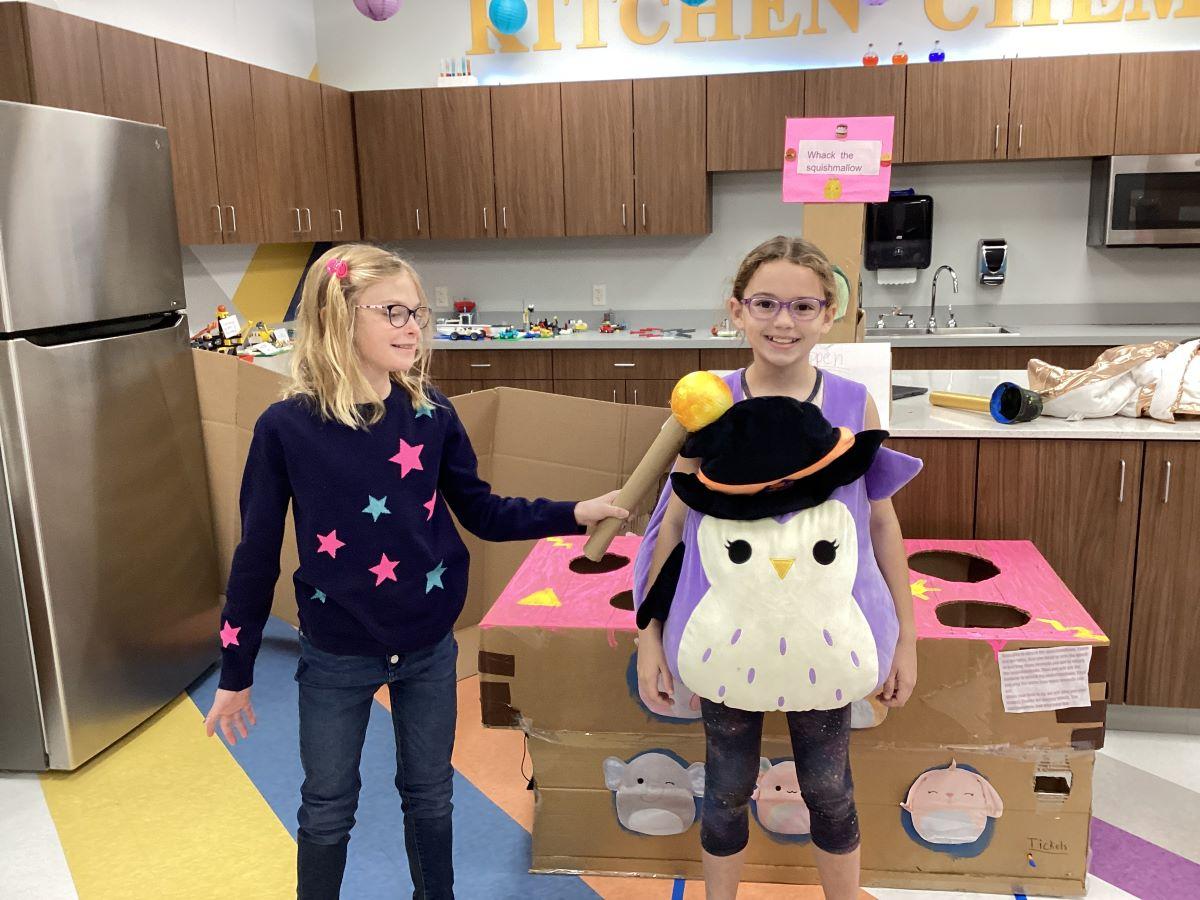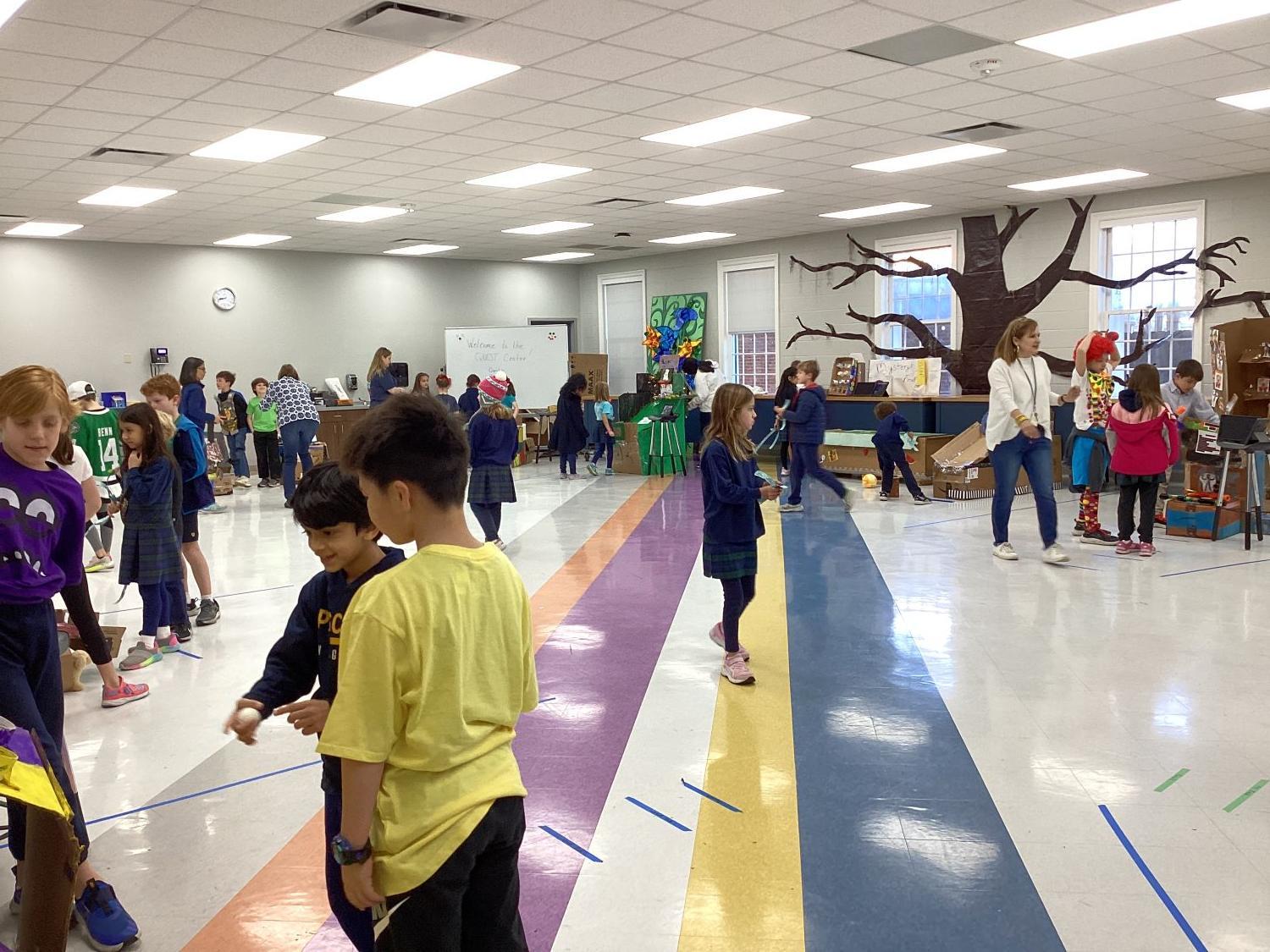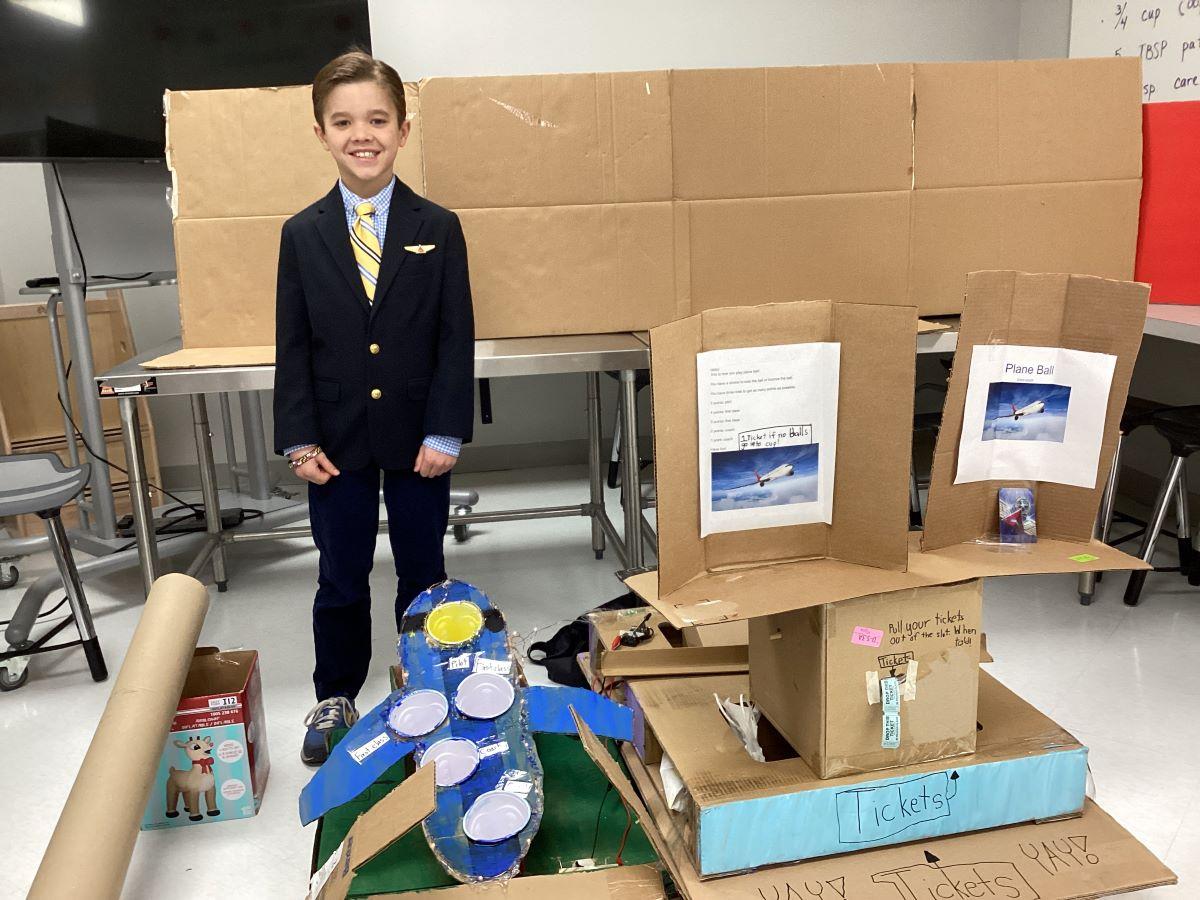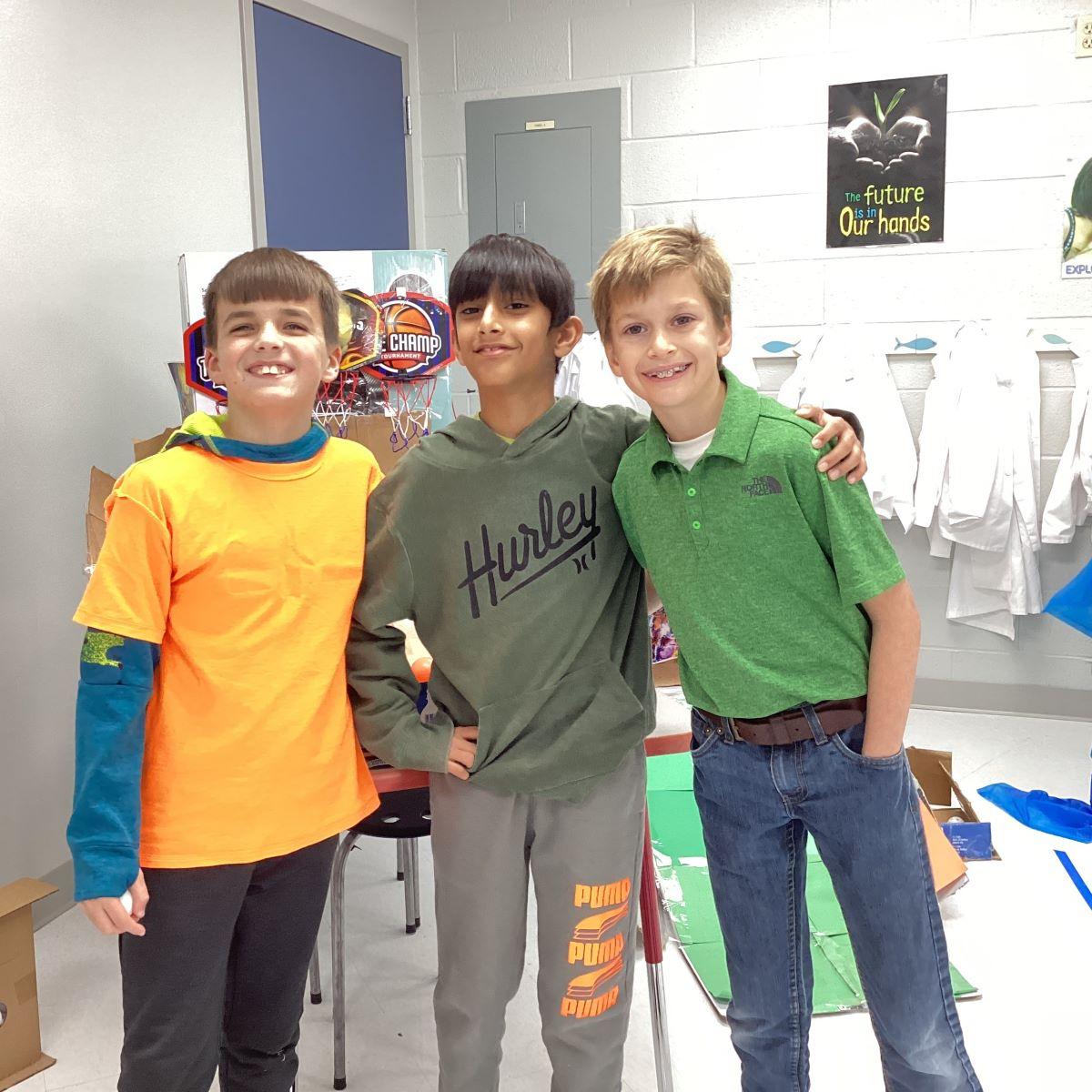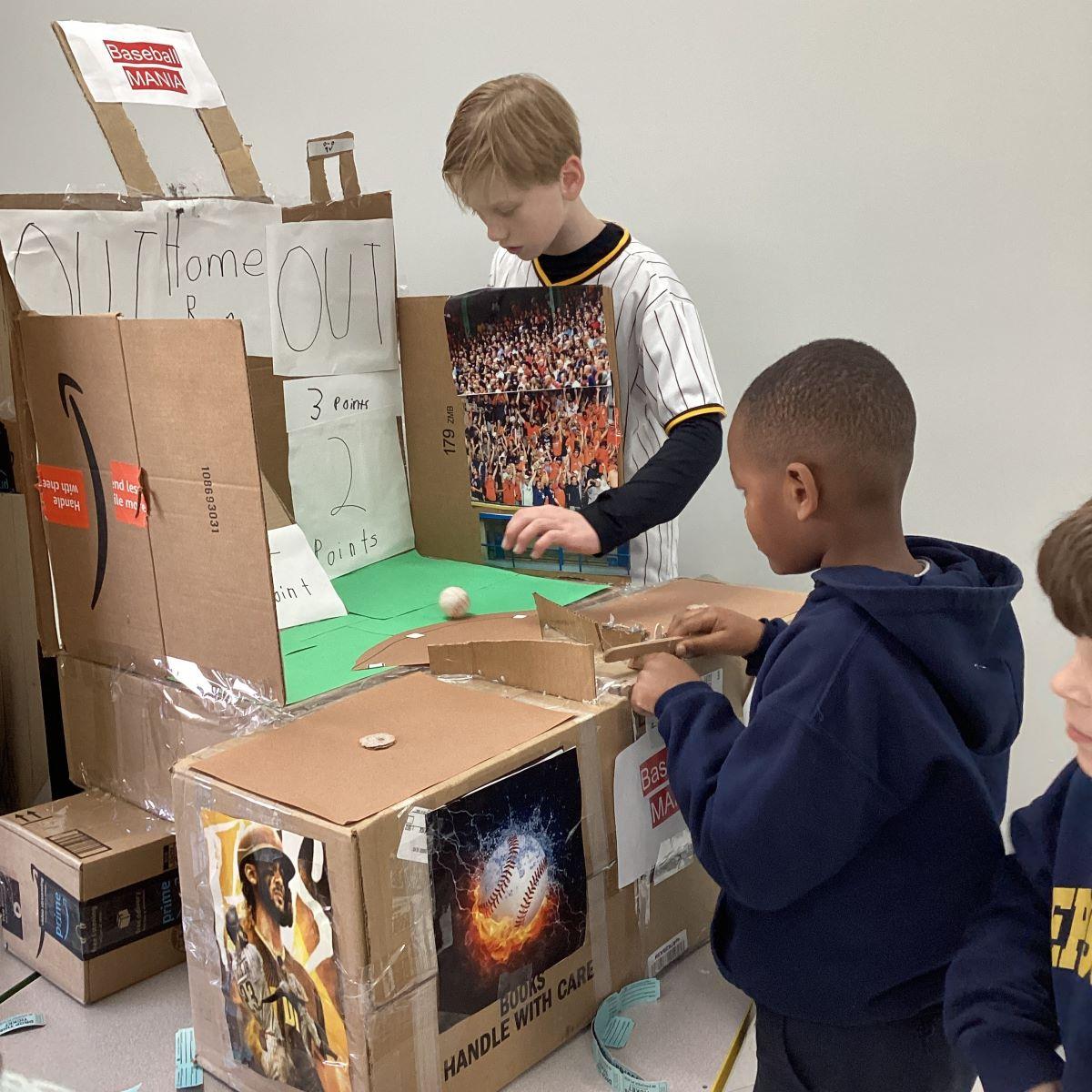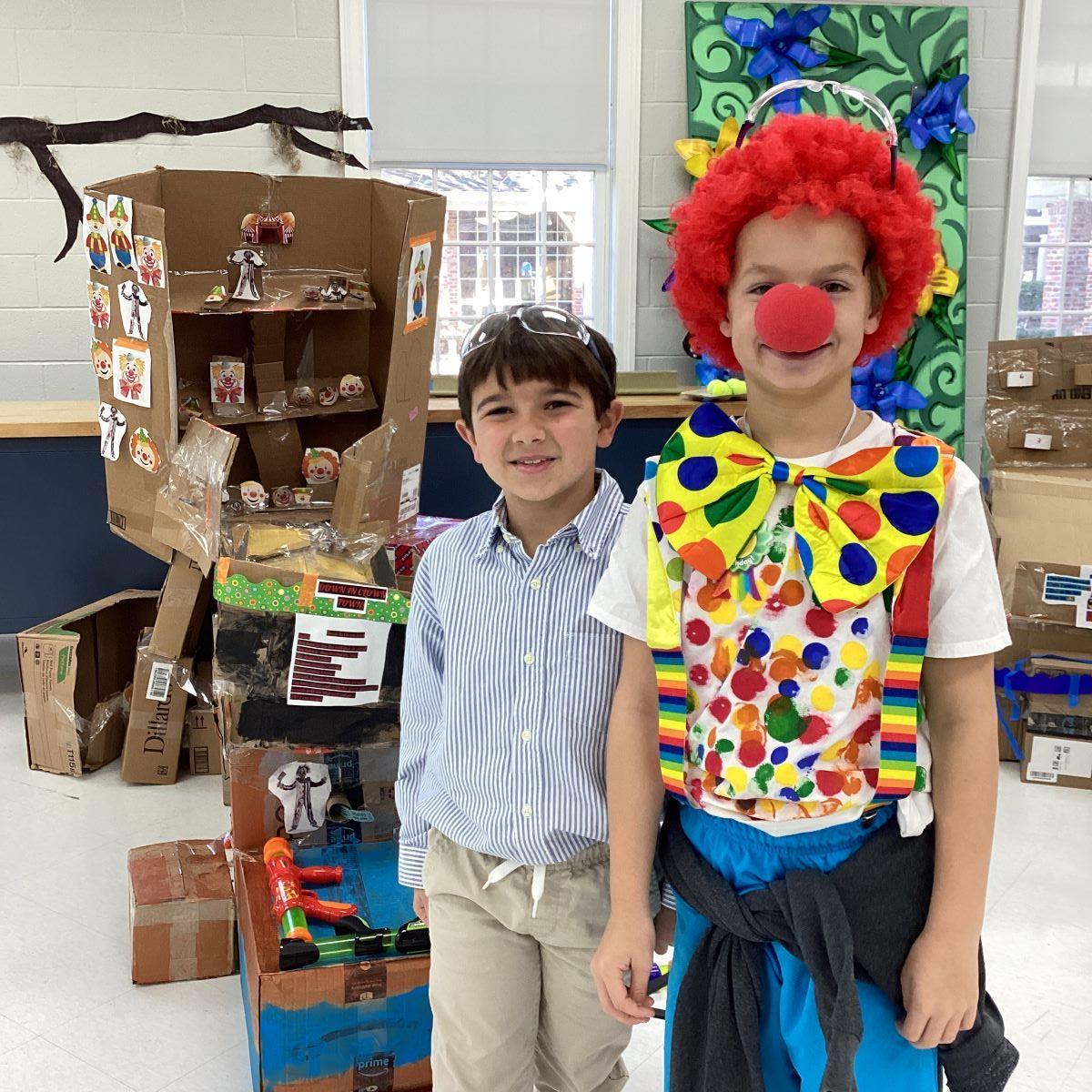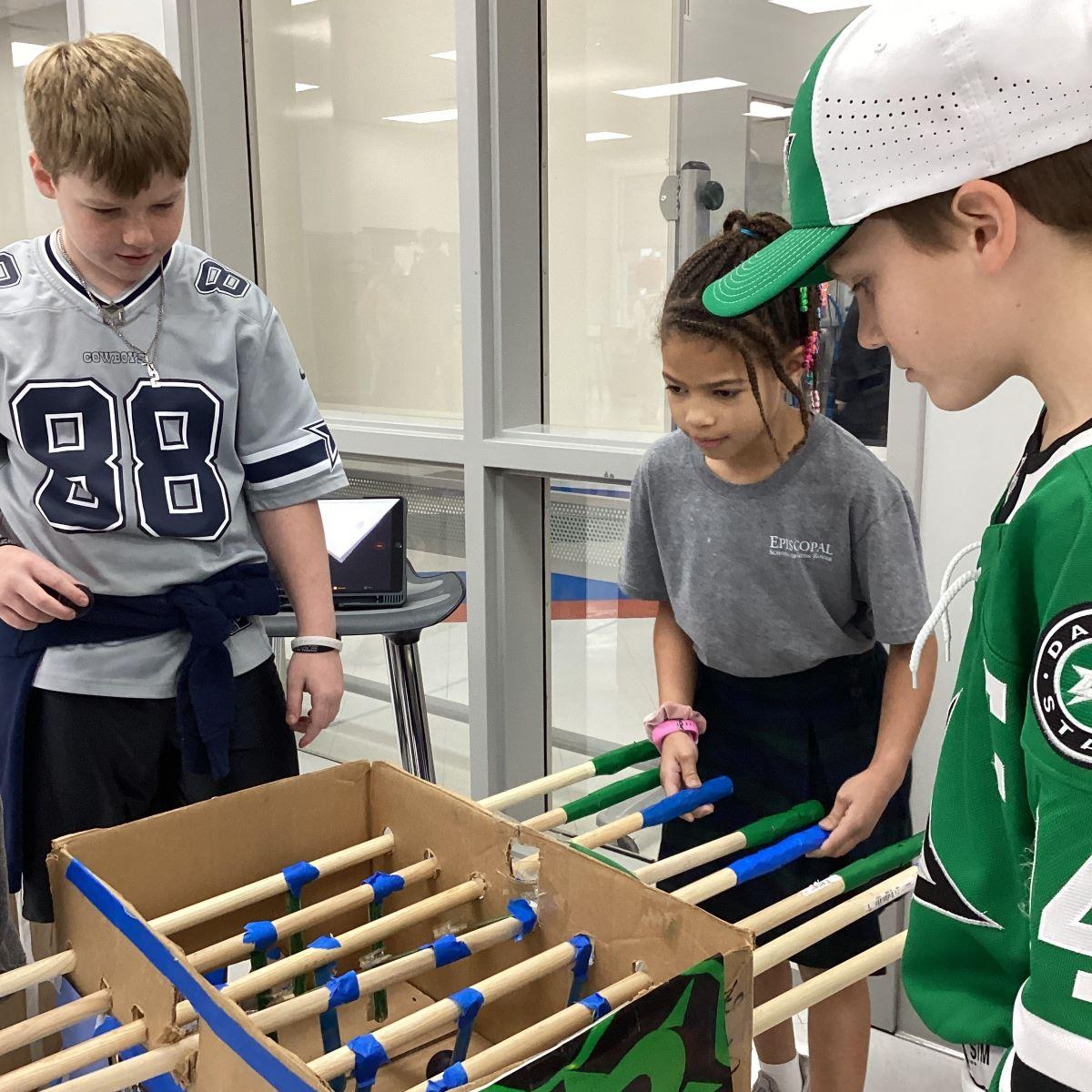- Admission
- Discover Episcopal
- Our Program
- Athletics
- Arts
- Spirituality
- Student Life
- Support Episcopal
- Alumni
- Parent Support
- Knightly News
- Contact Us
- Calendar
- School Store
- Lunch Menu
- Summer Camps
« Back
The Engineering Design Cycle is Alive and Well in the QUEST Center
February 1st, 2023
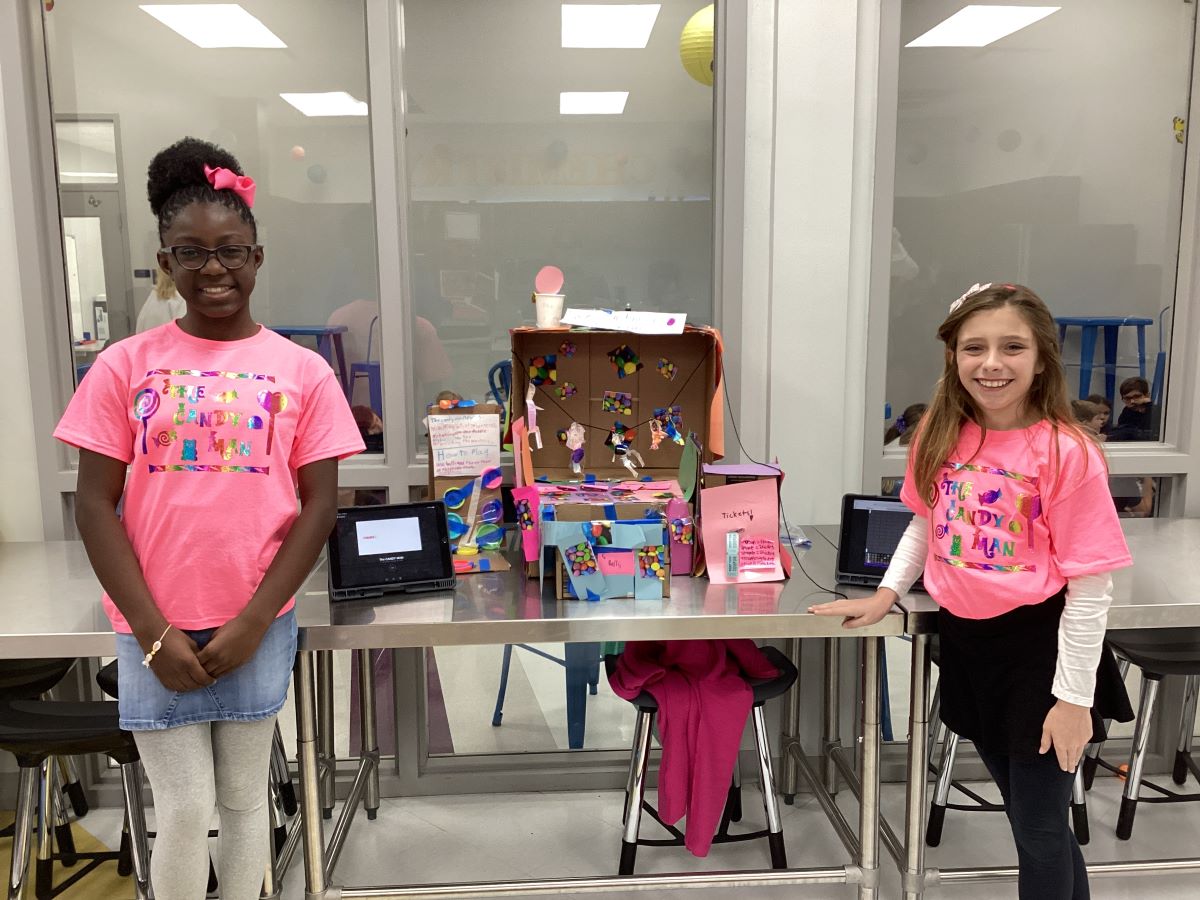
Over the past several weeks, the sound of electric cardboard cutters has been an almost constant hum in the QUEST Center. Peering through the windows of our largest design studio, one sees 20 small bodies, each one completely engaged in the very best kind of experiential learning. The teacher is truly the “guide on the side” as her students figure out the answers to all sorts of physical and mechanical challenges.
Fourth graders were recently challenged to design and engineer an original cardboard arcade game as part of their science class with Mrs. Won. Students are required to use at least one simple machine in their game and to include one or more electrical circuits. This is an annual project in fourth grade, and it gets better and better each year. This year, students learned to create their own arcade music for their games with music teacher, Mr. Tupper. For me, this project best exemplifies what we want to teach children to do…to become critical thinkers and creative problem solvers and to apply what they have learned in original ways.
Mrs. Won begins this project by telling the story of Caine’s Arcade and showing her students a video about one real boy’s cardboard arcade in Los Angeles. This nine-year-old boy started his arcade in part because he had little to do during his summer vacation, while hanging out at his dad’s auto parts store. He took his love of arcade games and some left-over boxes and created something marvelous. Caine demonstrates great creativity and an entrepreneurial spirit, and children and adults alike are inspired by his story.
After learning about Caine’s arcade, our fourth-grade students begin researching different types of arcade games and brainstorming their own original versions of these games. They create detailed sketches of their ideas as well as lists of necessary materials to make their visions a reality. They then come to the QUEST Center to begin the engineering process. All shapes and sizes of boxes, tubes and cardboard pieces are at the students’ disposal, as well as lots and lots of packing tape and electric and manual cardboard cutters. In the process of creating their games, students practice many important life skills, such as estimating, measuring, cutting, tearing tape, collaborating with teammates, finding ways to attach different materials and get them to stand upright, etc. Students move through the engineering design cycle many different times during this project, as they tweak and refine their original ideas. They question, uncover new knowledge and ideas, explore, synthesize new information, and test their ideas…multiple times throughout the project. This endeavor is a wonderful example of what the QUEST Center was designed to provide…a place for experiential learning experiences where students are stretched to learn new things by doing.
At a time when so many children are over-scheduled after school and even during weekends and vacations, there is little to no time for them to sit quietly and imagine, and wonder, and explore and tinker and test their ideas. If we want our students to become the inventors and innovators who will solve future problems, we need to continue to provide learning experiences such as this cardboard arcade project. Children desperately need and benefit from learning quests such as this one.

Dr. Elizabeth Lewis brings a wealth of expertise to the role of Quest Center Coordinator with a career in education that began in 1993. Elizabeth earned a bachelor’s degree in French and elementary and middle school education from Mary Baldwin College in Virginia, and a M.Ed. and PhD in educational psychology (gifted and creative education) from the University of Georgia. Elizabeth has taught at the university level, published numerous articles and children’s books, and presented at a multitude of national professional meetings. She is a member of the National Science Teaching Association, the National Association for Gifted Children and the Society of Children’s Book Writers and Illustrators. Most recently, Elizabeth was the Lower School Science Specialist at Metairie Park Country Day School where she won first place for Elementary Schools in the Louisiana Green Schools Challenge for her design and implementation of a butterfly garden, registered monarch way station and aquaponics garden. In 2012, Elizabeth was a member of the Episcopal faculty as the school’s Science Instigator and Inquirist.
The Episcopal School of Baton Rouge 2025-2026 application is now available! For more information on the application process, to schedule a tour, or learn more about the private school, contact us at [email protected] or 225-755-2685.
Other articles to consider
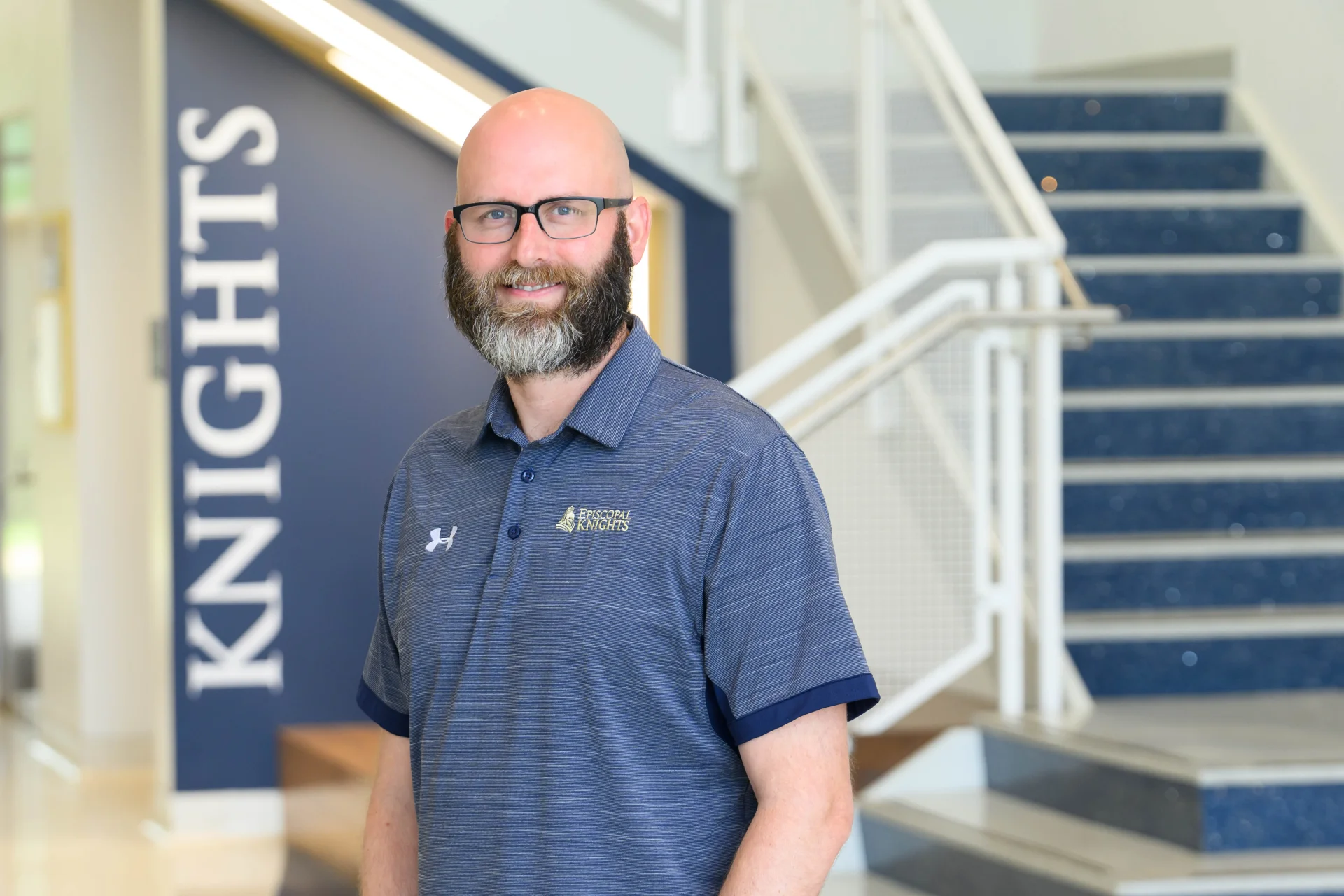 Jun5Episcopal Announces New Athletic Director
Jun5Episcopal Announces New Athletic DirectorPlease join us in welcoming Brent Broussard to the Episcopal community.
See Details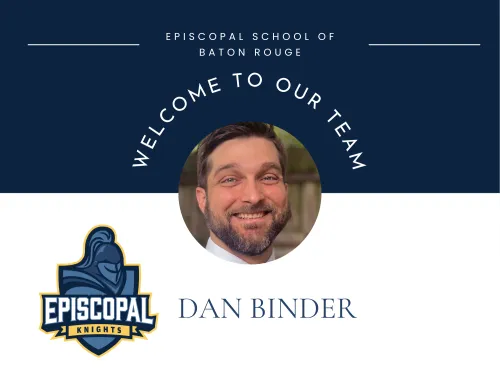 Jun2Episcopal Welcomes Dan Binder as the Next Upper School Division Head
Jun2Episcopal Welcomes Dan Binder as the Next Upper School Division HeadPlease join us in welcoming Dan Binder to the Episcopal community.
See Details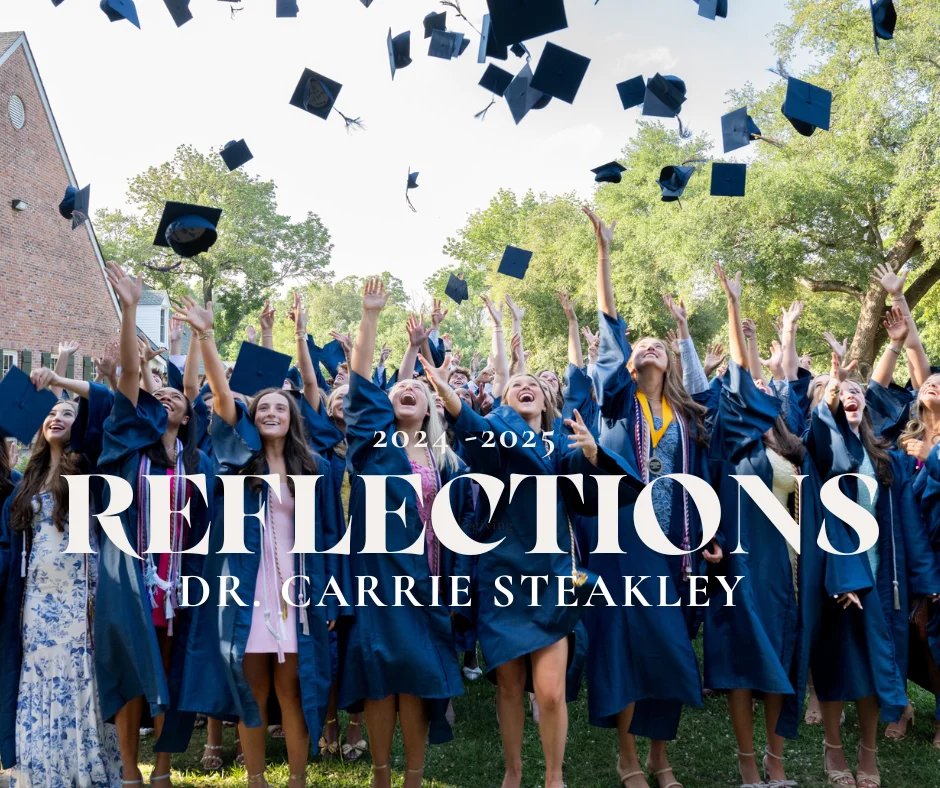 May22End of the Year Reflection from Dr. Steakley
May22End of the Year Reflection from Dr. SteakleyAn Episcopal education and the community that supports it are remarkable. Dr. Steakley looks back at the moments that made the 2024/2025 school year.
See Details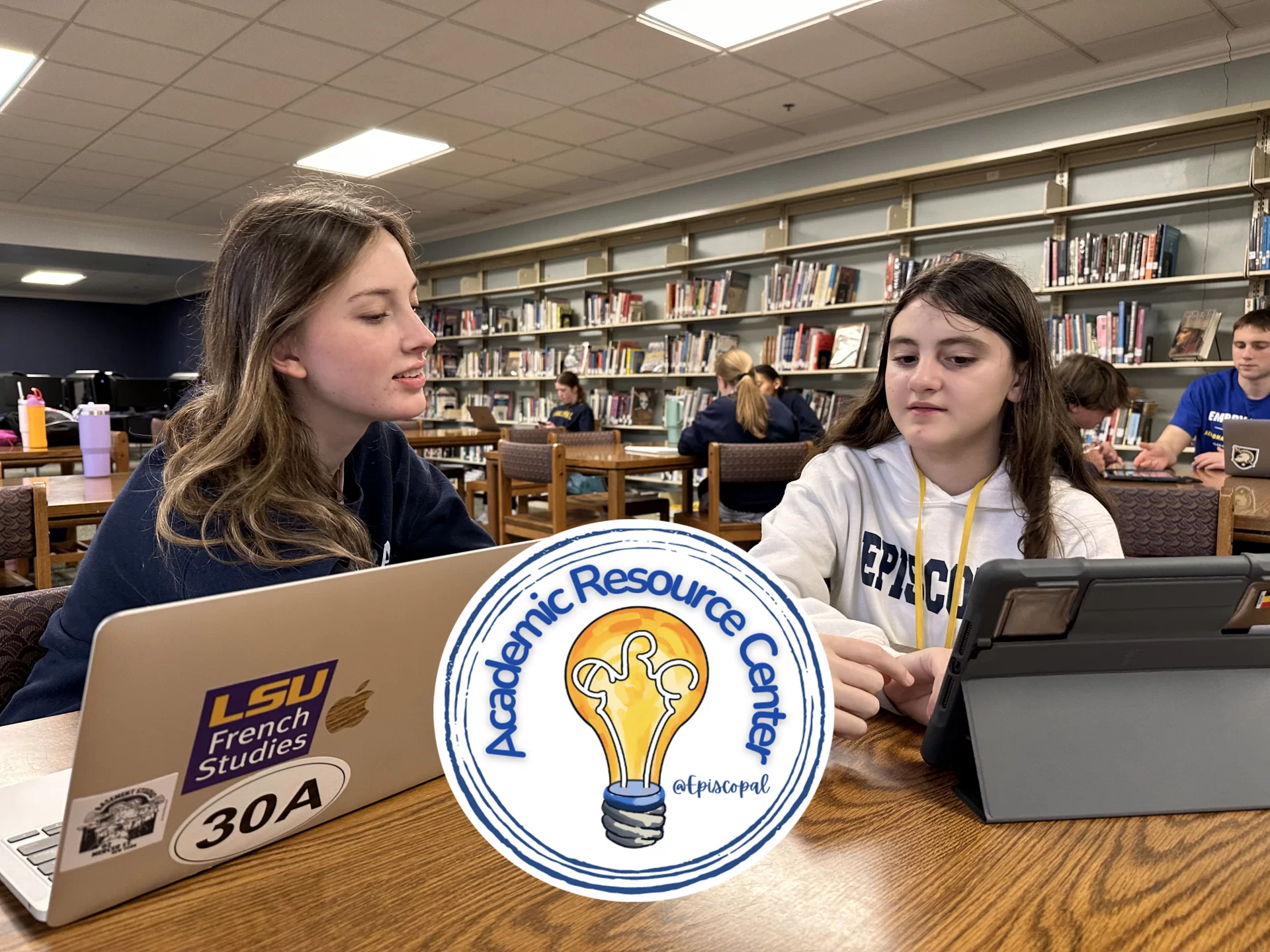 May12Tutoring with a Purpose: Jackson Ezell Reflects on His Time in the Academic Resource Center
May12Tutoring with a Purpose: Jackson Ezell Reflects on His Time in the Academic Resource CenterTime as an ARC Fellow boosts student confidence, encourages friendships and fosters lifelong learning habits. Senior Jackson Ezell reflects on his transformation as a tutor and the transformation of the center from Writing Center to Academic Resource Center.
See Details
Categories
- All
- Admission
- Athletics
- College Bound 2019
- College Bound 2020
- College Bound 2021
- College Bound 2022
- College Bound 2023
- College Bound 2024
- College Bound 2025
- Counselors Corner
- Episcopal Alumni
- Giving
- Head Of School
- Lower School
- Middle School
- Spirituality And Service
- Student Work
- The Teachers' Lounge
- Upper School
- Visual And Performing Arts


